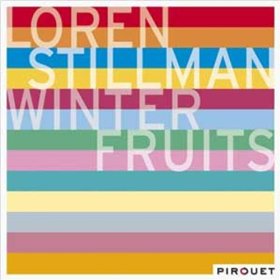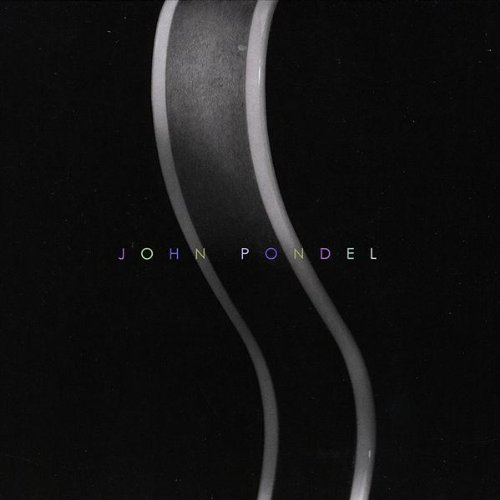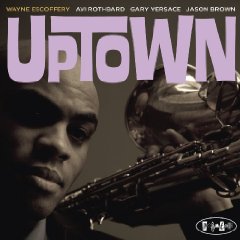
 |
 |
 |
|
By Jean Timmons The recent releases of Stillman, Pondell, and Escoffery are all quite different from each other. Each has something to offer and each reflects up-and-coming jazz musician - what's happening, as it were.
Winter Fruits This recording is a follow-up to Loren Stillman's Blind Date, also produced by Pirouet. Winter Fruits is a mood shifting set of cerebral music with pieces that fit well together for an interest-sustaining recording. All but two of the pieces ("Muted Dreams" and "Winter Fruits" by drummer Poor) were composed by Stillman. But each piece blends well with the others, reflecting the tight unity of this group. The first on the program, "Muted Dreams," sets the mood for music that affects mainly the mind rather than the body. It is followed up by "Skin," which is particularly affecting of both mind and body. Its peaks and valleys structure with players coming together and blending to produce their unique sound is memorable; Stillman is most inventive and dynamic on this piece. It is rather modal in structure yet on it Stillman shows quite a range and in the end takes a solo that is strikingly improvisational. Guitar, organ, drums are all exceptional on this piece. The pieces that follow are either slow or flighty, with the organ adding a magisterial element. For example, "A Song to Be Played," with its striking use of silence as if reflecting a piece that will not yield to the instruments, is followed by an upbeat "Winter Fruits' that begins with a compelling drums and saxophone duet. There are many interesting polyrhythmic blends throughout the piece. And Versace is impressive. But, then, this group works well together. It is impressionable music to listen to and relax with candles burning.
John Pondel Guitarist John Pondel has been on the musical scene for quite some time now, working as a studio musician and in live jazz performances. Born in Chicago but raised in California, Pondel has played with many well-known West Coast musicians, e.g., Tom Scott, Art Pepper, Al Jarreau, and Buddy Collette. He’s played rhythm guitar with George Benson. For awhile he has worked in the acid jazz genre (that revivalist 60s and 70s jazz funk music) with his band called Jazzhole. This album represents his first solo with Colley and Dos Santos and is heavily influence by Brazilian music, from the first piece, "Make It Nice," and nice it is. The music alternates between a fast pace and a slow pace but all is imbued with a romanticism that is fetching. On "Make It Nice," David Binney adds his lyrical flute and together with Pondel creates that very laid-back feeling one can derive from an Antonio Carlos Jobim piece. Binney joins the trio on "Mr. Obvious," playing the alto saxophone, and the groups injects positive twists on that Brazilian, bossa nova foundation. On this piece, Binney provides solid ground for Pondel's solo. Binney's flute is also use to beneficial effect on "Waving not Drowning," with its strong use of percussions and Colley imparting a resonant solo. A swiftly paced Horace Silver piece, "The Jody Grind," rendered in bossa nova, also provides an opportunity for bassist Colley to stand out. Pondell, ever generous, makes the final piece a bit of a showcase for the percussionist Dos Santos. Throughout Pondell is out front but never overpowering.
Uptown Britain-born Wayne Escoffery teams with Israeli-born Avi Rothbard for many of the original compositions on this recording. The music is mainly straight-ahead, and the musicians find an easy groove on practically all the songs and stick with it. Escoffery notes that his influences are Coltrane, Rollins, Shorter, and a few others but he reminds me more of Stanley Turrentine in his ability to stay in that middle range and sustain the listener’s interest in his playing. From the opening piece, "No Desert," to the real final one, "Maya's Waltz," Rothbard is his trusted companion. Rothbard is particularly strong on that opening piece, along with Versace. On organ, Versace truly finds a bluesy groove for the instrument on the ballad "You Know I Care," allowing Escoffery to takes his time and let the music develop, no matter the quicken improvisational direction Rothbard brings into the piece, playing for awhile as if he owned it. Throughout each selection, the Latin-tinged "Cross Bronx" to the Middle Eastern-flavored "Gulf of Aqaba" to the pop-inspired "Nu Soul," the musicians find a place of unity and swing throughout. Although the final piece, "Easy Now" is too short and too sweet, at least for this reviewer's taste. Completion would have been better served with the longest piece of the set, "Maya's Waltz," with its extremely effective passage featuring guitar, drums, and organ. Overall the work is easy on the ears, the musicians work well together, and the recording provides a standout piece in "Cross Bronx." As with the other recordings, one could play this music for guest, and it would be entertaining but not intrusive. But like the other groups, too, there is a bit of repetitiousness about the music. The composers posit one line, and the rest is repetition with subtle variations.
|